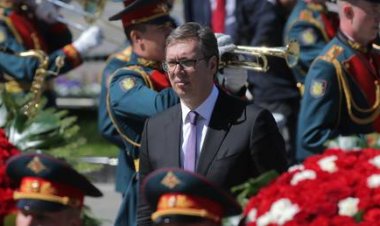Russian gas giant posts first loss since 1990s
Russian gas giant posts first loss since 1999 after drop in revenues amid lower exports as a result of Western sanctions. source:TROIB RTS

Gazprom’s record net loss follows a decline in revenues, according to an earnings report
Russian energy major Gazprom reported its first annual loss since 1999 on Thursday, in the wake of dwindling gas exports due to Western sanctions pressure.
According to the state-owned company’s earnings report, Gazprom Group posted a net loss of 629 billion rubles ($6.7 billion) in 2023, its first annual loss in 25 years. The result comes in contrast to a net profit of $13.2 billion in 2022.
The firm’s total revenue fell to $92 billion in 2023 from $126 billion in the previous year.
According to the report, revenue from gas sales fell by 40% to $47.4 billion while revenue from oil business increased by 4%, to $38 billion. Sales at its power utilities business increased by nearly 9% to $6.6 billion.
Gazprom’s shares plunged more than 4% following Thursday’s earnings report.
Russian gas exports to its traditional markets in the EU have dwindled due to sanctions related to the Ukraine conflict and to the sabotage of the Nord Stream pipelines, previously Russia’s major gas route to the region.
According to Reuters’ calculations, Gazprom’s natural gas supplies to Europe plummeted 55.6% to 28.3 billion cubic meters (bcm) in 2023. Exports dropped to their lowest level since the early 1970s, according to International Energy Agency estimates.
However, Gazprom has reoriented its energy trade to Asia, with China emerging as one of its largest buyers. The volume of Russian gas supplies to China could reach nearly 100 bcm annually when the Power of Siberia pipelines are fully operational. Once that happens, China will fully substitute the EU in terms of purchases of Russian gas, according to Gazprom.
READ MORE: Russian gas giant starts connecting key Asian pipelines
The company’s CEO Aleksey Miller had said previously that Gazprom would also strengthen its cooperation with Central Asian countries as part of a strategy to replace the EU market.
For more stories on economy & finance visit RT’s business section
Find more stories on Business, Economy and Finance in TROIB business












